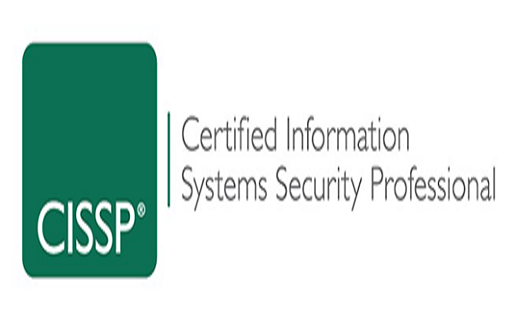Khóa học CISSP dành cho học viên của PNH
Chứng nhận CISSP được công nhận trên toàn cầu, được hầu hết các công ty săn đón. Trong chương trình đào tạo CISSP, người tham gia sẽ có được những kiến thức tốt nhất về an ninh thông tin, mật mã, và thực hành quản lý an ninh.
Tổng quan về khóa học này của PNH
Mục tiêu cung cấp cho học viên các khái niệm về đánh giá rủi ro, phân tích rủi ro, phân loại dữ liệu, và nhận thức về an ninh và thực hiện quản lý rủi ro và các nguyên tắc sử dụng để hỗ trợ nó (tránh rủi ro, chấp nhận rủi ro, giảm thiểu rủi ro, chuyển giao rủi ro). Ngoài ra cũng giúp cho học viên hiểu được các phương pháp đánh giá, mô tả cấu trúc, tiến trình của một tổ chức an ninh, hệ thông an ninh thông tin, học viên có thể đưa ra định hướng chiến lược và cách giải quyết để thiết lập nền tảng của một chương trình bảo mật toàn diện
Đào tạo CISSP giúp học viên có được kiến thức chuyên sâu về an ninh máy tính và hệ thống kiểm soát truy cập. Chương trình đào tạo bao gồm một loạt các chủ đề nghiên cứu sẽ giúp những người tham gia chuẩn bị cho kỳ thi chứng nhận CISSP. Bằng cách tham gia khóa học CISSP, người học sẽ có kiến thức về kiến trúc CISSP, để khi hoàn thành khóa học, họ sẽ đạt được kiến thức cần thiết cho việc thiết kế, xây dựng và duy trì một doanh nghiệp an toàn, một môi trường cần thiết cho một tổ chức.
-
Đối tượng tham dự học:
- Chuyên gia quản trị hệ thống, mạng.
- Chuyên gia phân tích bảo mật.
- Giám đốc/ quản lý IT.
- Chuyên gia kiến trúc mạng…
-
Thời lượng khóa học: 60h
-
Nội dung đào tạo
- Security and Risk Management (Security, Risk, Compliance, Law, Regulations, and Business Continuity)
- Confidentiality, integrity, and availability concepts
- Security governance principles
- Compliance
- Legal and regulatory issues
- Professional ethic
- Security policies, standards, procedures and guidelines
- Asset Security (Protecting Security of Assets)
- Information and asset classification
- Ownership (e.g. data owners, system owners)
- Protect privacy
- Appropriate retention
- Data security controls
- Handling requirements (e.g. markings, labels, storage)
- Security Engineering (Engineering and Management of Security)
- Engineering processes using secure design principles
- Security models fundamental concepts
- Security evaluation models
- Security capabilities of information systems
- Security architectures, designs, and solution elements vulnerabilities
- Web-based systems vulnerabilities
- Mobile systems vulnerabilities
- Embedded devices and cyber-physical systems vulnerabilities
- Cryptography
- Site and facility design secure principles
- Physical security
- Communication and Network Security (Designing and Protecting Network Security)
- Secure network architecture design (e.g. IP & non-IP protocols, segmentation)
- Secure network components
- Secure communication channels
- Network attacks
- Identity and Access Management (Controlling Access and Managing Identity)
- Physical and logical assets control
- Identification and authentication of people and devices
- Identity as a service (e.g. cloud identity)
- Third-party identity services (e.g. on-premise)
- Access control attacks
- Identity and access provisioning lifecycle (e.g. provisioning review)
- Security Assessment and Testing (Designing, Performing, and Analyzing Security Testing)
- Assessment and test strategies
- Security process data (e.g. management and operational controls)
- Security control testing
- Test outputs (e.g. automated, manual)
- Security architectures vulnerabilities
- Security Operations (Foundational Concepts, Investigations, Incident Management, and Disaster Recovery)
- Investigations support and requirements
- Logging and monitoring activities
- Provisioning of resources
- Foundational security operations concepts
- Resource protection techniques
- Incident management
- Preventative measures
- Patch and vulnerability management
- Change management processes
- Recovery strategies
- Disaster recovery processes and plans
- Business continuity planning and exercises
- Physical security
- Personnel safety concerns
- Software Development Security (Understanding, Applying, and Enforcing Software Security)
- Security in the software development lifecycle
- Development environment security controls
- Software security effectiveness
- Acquired software security impact
Các bạn có câu hỏi thắc mắc về khóa học xin vui lòng liên hệ để được giải đáp:
HỌC VIỆN PNH – 19 NĂM ĐÀO TẠO & THI CHỨNG CHỈ CNTT QUỐC TẾ TẠI HÀ NỘI








Để lại bình luận của bạn
Hãy để lại bình luận của bạn để cùng trao đổi với chúng tôi !